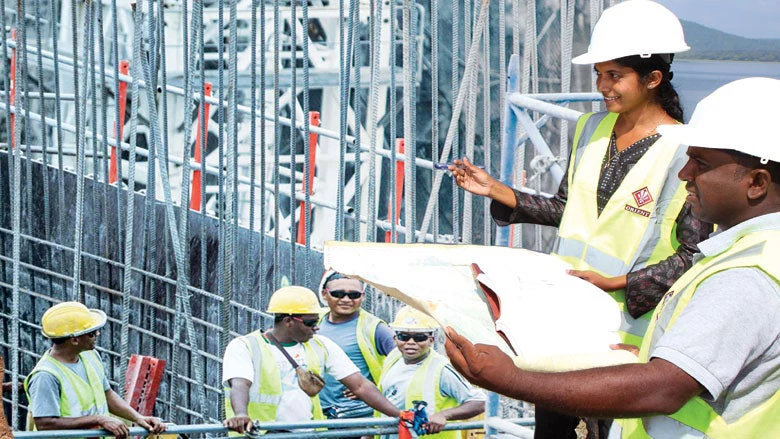The program of events at the just concluded 2017 World Bank-IMF Annual Meetings was rich, and covered a range of topics instrumental to the World Bank Group’s work.
However, the event closest to my heart was on the role national development banks (NDBs) can play to close the staggering financing gap needed to reach the Sustainable Development Goals, nicknamed going “from billions to trillions” of dollars.
Since the SDGs were announced, the international development community has been looking at ways to tap into new funding venues, attract the private sector and build relevant private-public sector partnerships.
The role we see for them is parallel to the role we see for ourselves, the World Bank Group. That is, to help crowd-in the private sector to finance projects with high developmental impact such as infrastructure or projects that can yield a greater public good but which the private sector may not be interested in funding directly.
It was insightful to hear from principals how to strengthen cooperation between national development banks, the private sector and multilateral development banks, and to reflect on what has worked and what can be improved on.
Here are seven highlights from this discussion.
- National development banks need to develop new products to absorb risks that the private sector is reluctant to take , which requires strengthening their risk management frameworks. Cooperating with the private sector can help them develop better risk-sharing schemes, noted Shaharuddin Zainuddin, President of Bank Pembangunan Malaysia Berhad (BPMB). However, to ensure that NDBs stay focus on their developmental mandate and complement rather than crowd-out the private sector, it’s important to monitor and disclose developmental impacts as well as financial information.
- Since national development banks are close to decision-makers and have a deep understanding of the local political landscape, they can help the private sector determine the political and regulatory risk and help them become more comfortable when entering into a public-private partnership. This would allow complex projects take off much quicker, explained Patrick Khulekani Dlamini, CEO of Development Bank of Southern Africa (DBSA).
- National development banks help translate big international priorities and embed them into national development priorities and goals, said Remy Rioux, CEO of Agence Française de Développement (AFD).
- To make national development banks more effective in mobilizing private sector funding, they need to be shielded from political interference, have explicit targets that force them to structure projects with the private sector, and be able to hire and retain qualified staff. This is what Colombia did when it established Financiera de Desarrollo Nacional (FDN) to address the country’s huge infrastructure deficit, said Clemente del Valle, President of Financiera de Desarrollo Nacional de Colombia.
- National development banks can help close the gap between urgent development needs and what the private sector is willing to invest in, by helping the private sector navigate and understand local dynamics and by creating a strong pipeline of projects with clear and implementable “private-sector type guidelines,” noted Gerardo Rodriguez, Managing Director of U.S.-based BlackRock, the world's largest asset manager.
- National development banks, as well as multilateral development banks (MDBs), are instrumental in helping to create robust credit markets in emerging economies, considering that the lack of access to credit and financial exclusion are among the biggest challenges to achieving meaningful development impact, said Joachim Nagel, General Manager and Member of the Executive Committee of Kreditanstalt für Wiederaufbau (KfW).
- Institutions (NDBs and MBDs) need to align methodologies and enhance trust by being open to delegating responsibility for appraisal, procurement or monitoring to partner institutions, and work together to attract the private sector, noted Ambroise Fayolle, Vice-President of European Investment Bank (EIB).
We, at the World Bank Group, are moving in this direction: We are focused on creating an enabling environment to facilitate private sector financing of development needs and using our balance sheet to crowd-in private capital, when necessary.



Join the Conversation